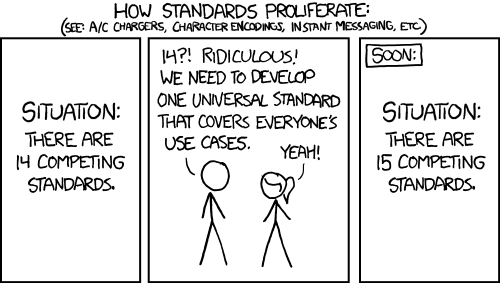vinipsmaker
Member
Reminds me of the package format threads we sometimes have: http://0pointer.net/blog/revisiting-how-we-put-together-linux-systems.html
Seems to me like the article outlines several ways in which things are, in fact, broken, they're just broken in ways we're aware of and accept as necessary.The problem with what they're trying to do, of course can be summed up in a three panel comic about stick figures.ho my gosh, no way... thanks for trying to fix something that is not broken...

I don't have a problem with the dependency against *features* from btrfs, but depending on btrfs is problematic.They may be right that btrfs' dedup will save us from software from different sources all using different runtimes

